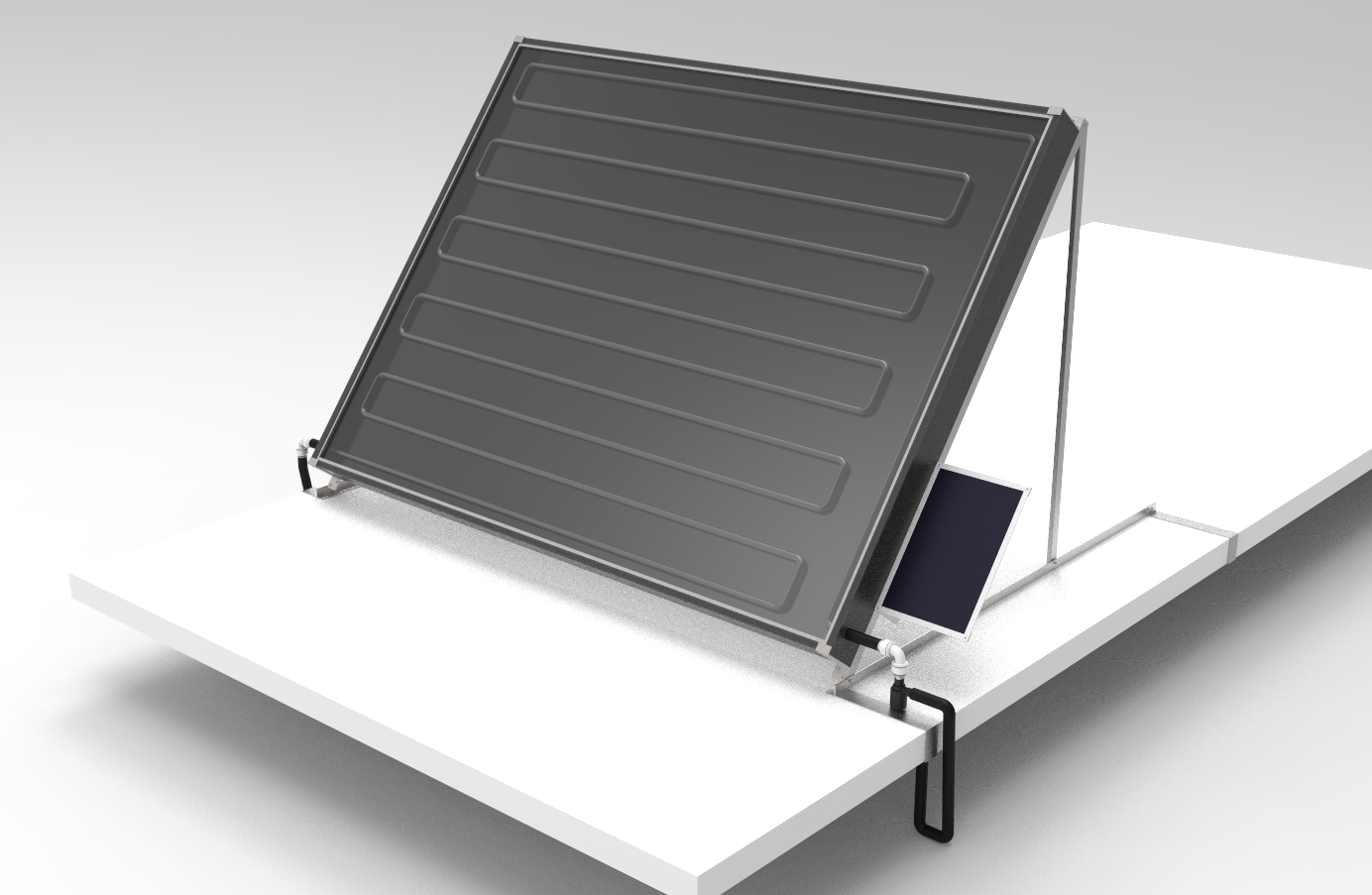Colloquium announcement
Faculty of Engineering Technology
Department Design, Production and Management
Master programme Industrial Design Engineering
As part of his / her master assignment
Huerta Peña, J. (Javier Huerta Peña)
will hold a speech entitled:
Solar space heating and cooling system for storage container units
| Date | 31-01-2024 |
| Time | 09:00 |
| Room | W244 |
Summary
The thesis presents the findings of the research question How can cost-effective sustainable technologies be effectively employed to regulate the temperature of storage container units? This question comes from the company Salland Storage. They provide rent space in storage containers and wish to improve the quality of their services. Salland Storage is the main stakeholder and establishes a clear list of requirements that guide this assignment.
The assignment is structured into six distinct phases: Research Task, Ideation, Conceptualization, Development, Final Design, and Conclusions and Recommendations. To guide these phases effectively, two innovative design methodologies are employed: the Delft Innovation Method and TRIZ (Theory of Inventive Problem Solving).
The Delft Innovation Method offers a structured approach to the research task, involving internal analyses of the company and product, as well as external analyses of existing sustainable technologies. This process helps define a strategic framework to guide subsequent phases. In the ideation phase, TRIZ tools are employed to generate innovative ideas that contribute to the conceptualization of solutions.
The requirements are assigned weighting factors, for grading the concepts and selecting the optimal option. The chosen concept is a dual system designed for both heating and cooling purposes. This innovative approach involves utilizing a solar collector for heating and a radiative cooling panel for cooling. The system includes a heat exchanger, capable of distributing heat or dissipating, depending on the seasonal requirements.
The conceptual development involves a thorough assessment of the heat and cooling loads of the storage container, facilitating the sizing of the solar collector to meet the heating requirements. Additionally, the concept development encompasses detailed specifications of all the components, including the flat plate collector, support frame, heat exchange radiator panel, active system, and radiative cooling panel. Their assembly procedures are included to ensure an effective functioning of the system.
In the final design section, comprehensive technical drawings, cost analyses, and system recommendations are presented, providing essential information to produce a prototype. This section aims to deliver all the necessary details required for the successful implementation of the developed concepts.
Finally, conclusions are drawn based on the results of the assignment, encompassing future recommendations for the potential development of the project. Additionally, a reflective analysis is undertaken to gain insights into the overall process.
Assessment committee |
chair Signature d.d. |
|
| Dr. Ir. T.H.J Vaneker Dr. Ir. P. K. Chemweno Dr. Ing S. Yang |
(chair) (internal member) (external member) |
|
